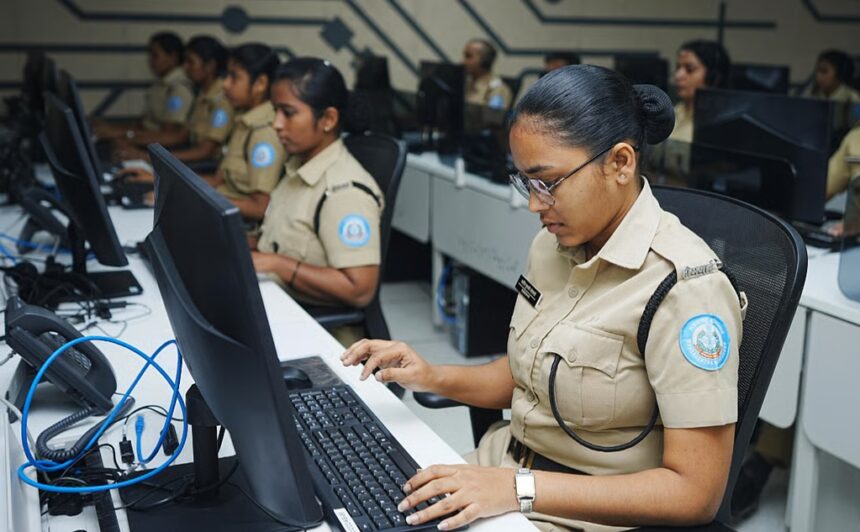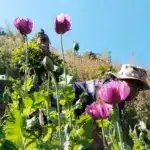MUMBAI – Across India, activists are urging officials to take stronger steps against illegal online Matka gambling sites. Despite bans under the Public Gambling Act of 1867, digital versions of Matka continue to flourish on platforms like Satta Matka, DPBoss.net, Matka Boss, and Satta Matka DPBoss.
These sites bring a new life to the old betting game, which has deep roots in India’s post-independence history. Activists say these sites put people at risk of addiction, financial loss, and involvement in crime. They want the government to take firm action and stop the spread of online Matka gambling.
How Matka Began in India
Matka’s story began in Mumbai during the 1950s, soon after India’s independence. At first, the game was based on betting on the cotton rates arriving by teleprinter from the New York Cotton Exchange to Bombay’s cotton markets. Workers and traders in Mumbai’s textile centres took part in what was then known as Ankada Jugar, a simple numbers game.
The name “Matka”, which means “earthen pot”, referred to the tradition of drawing random numbers from a pot to pick winners.
The format changed in the 1960s after the New York Cotton Exchange stopped sending cotton rates in 1961. Bookmakers adapted by inventing a system of random number draws. Ratan Khatri, who became known as the “Matka King”, played a central role in redesigning the game.
Numbers were written on slips and selected at random from a pot to decide the outcome. This change made Matka a popular lottery, attracting widespread attention. By the 1980s and 1990s, Matka gambling was huge, with people in Mumbai gambling crores of rupees each month through a wide network of bookies.
The authorities, however, soon took notice. The Public Gambling Act of 1867, created during British rule, made it a crime to run or visit any gambling house. The law set out fines and jail time for those involved. As Matka’s popularity soared, police started carrying out raids on dens, driving the industry further underground. But with the rise of the internet in the early 2000s, Matka found a new way to reach players.
Matka Goes Online
Now, Matka gambling is mostly online. Sites like Satta Matka, DPBoss.net, Matka Boss, and Satta Matka DPBoss are among the most active, taking advantage of old laws that do not mention online betting. Today’s Matka websites offer live results, charts, and predictions for markets such as Kalyan Matka, Milan Matka, Rajdhani Matka, and Main Bazar.
Players choose three numbers from 0 to 9. The sum of their numbers helps decide the winning combination, with different betting options like Single, Jodi, Patti, and Sangam making the game more complex. The promise of big payouts keeps people coming back.
Platforms such as DPBoss.net and Matka Boss have become the main source for Matka fans, offering daily results, tips, and so-called lucky numbers. Many of these sites look like legitimate games, featuring user-friendly layouts and mobile apps. Still, they operate without proper licences and often hide company ownership.
Many use foreign servers or VPNs to stay out of reach, making it tough for police to track them down. Few have any valid registration or offer proper contact details. The lack of security, such as SSL encryption, adds to concerns, yet millions are still drawn in by the promise of fast money.
Social and Legal Risks
The growth of these illegal gambling sites has raised concerns among those fighting gambling harm. Dr Priya Mehra from the National Coalition Against Gambling (NCAG) explains that Satta Matka traps the most vulnerable, leaving families in debt or worse.
She says, “We see families break apart, life savings disappear, and people turning to crime to feed their habit.” The NCAG believes that millions, mostly from low-income backgrounds, play Matka—often through these sites that seem to operate freely.
The effects on society are serious. Research links gambling to addiction, family violence, and poor mental health. Women and children suffer most, especially when family income is lost to betting.
Illegal Matka gambling also opens the door to money laundering and organised crime. Advocate Siddhant Sharma, who works in criminal law in Delhi, says these websites often serve as fronts for bigger criminal groups. The lack of oversight allows dirty money to flow, putting the financial system at risk.
Even though betting on Matka is illegal, shutting down these websites is tough. The Public Gambling Act mainly targets physical gambling houses and does not cover online sites. While some states like Maharashtra, Telangana, and Karnataka have passed their own bans on online gambling, applying these laws is inconsistent.
Police and ethical hackers face a challenge, as these sites shift IP addresses and hide outside India’s legal reach. Cybersecurity expert Anil Gupta points out that the law has to change to address internet gambling, or the websites will keep running.
New Demand for a Crackdown
Campaigners are stepping up their efforts, pressing for changes to the law and a complete ban on illegal online gambling. The NCAG, backed by groups such as the All India Responsible Gaming Forum (AIRGF), has pushed for better rules and action against websites like DPBoss.net and Satta Matka. They have staged protests in major cities and taken the matter to court, calling for urgent action to protect those at risk.
Police in Mumbai arrested over 200 people linked to Matka dens in 2024, seizing assets worth crores. Raids in Gujarat and Telangana have also brought down several online Matka networks.
However, campaigners say these are only temporary victories. Dr Mehra compares the approach to “cutting off one head and growing two in its place.” She insists that what’s needed is a mix of public education, better cyber laws, and stronger enforcement.
Activists also want tougher action on celebrities and influencers who promote Matka sites under the guise of gaming or entertainment. The Advertising Standards Council of India (ASCI) has labelled such promotions as unethical, but monitoring and punishment are weak.
Campaigners are calling for lawmakers to update the Public Gambling Act, set harsher penalties, and target both website operators and those advertising them.
The push against Matka gambling creates a complex task for the government. Some suggest legalising and regulating gambling, as is the case in Goa and Sikkim, could bring transparency and tax income.
But many argue this move would make gambling seem normal, increase addiction, and damage social values. Many community leaders and religious groups strongly oppose legalisation for these reasons.
Anti-gambling groups remain committed to their cause. AIRGF’s Vikram Singh says the aim is to save lives, not just close websites. As technology changes, so do the challenges in dealing with old gambling habits in new forms.
For those harmed by Matka gambling, the call for change grows louder, demanding action from a nation balancing tradition with modern demands.














